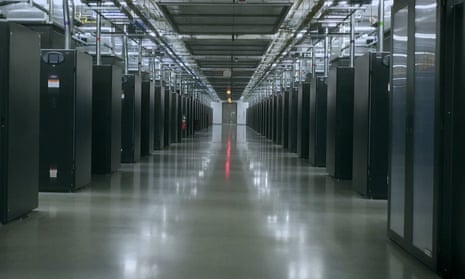Facebook has a director of social good. She is called Hema and if she has a surname, we weren’t privy to it. The BBC’s Horizon team, as if bewitched at being granted unprecedented access to the social network, bowed to its ethos by captioning interviewees by first name only. But access is like sex: it’s not what you have, but what you do with it that matters.
We met David, the director of harmful behaviour (tough gig, if his task is to stop it, rather than enable it), Monika, who is head of global policy management, and Vlad, Facebook’s head of artificial intelligence, though he will always be The Impaler to me. Sadly, we didn’t get to see Nick, but David Cameron’s former fig leaf has become Mark Zuckerberg’s now he is Facebook’s vice-president of global affairs. Mention Cleggmania in Menlo Park and nobody will know what you are on about.
By rolling over and waving its paws in this way, Horizon abolished critical distance from the global techno-oligarchy with 3.1 billion users and pretensions to ensnare the rest of us. (Facebook is building eight more data centres in the next few years with the aim of doubling storage to accommodate our data.) It put us on chummy terms with the outfit at a vexed moment. Can it change after last week’s $5bn (£4bn) fine for privacy violations in the Cambridge Analytica data breach?
In a meta sense, that was fitting: murdering distance and importuning strangers with simulations of friendliness is Facebook’s MO. It is why revenue exceeded $55bn last year. In another sense, though, this documentary almost amounted to an hour-long commercial for which Zuckerberg didn’t pay.
We witnessed how Facebook is ostensibly striving to use technical fixes to annihilate the human bugs out there – the scammers, hatemongers, sextortioners, e-groomers, Nazis, hackers and black marketeers. This was fascinating in its own right. Can artificial intelligence be used to detect other artificial intelligences posing as humans? How can hate speech by emoji be eliminated?
Fascinating, too, was the cult-like induction ceremony for incoming engineers, tens of thousands of whom are being hired, to ensure Facebook no longer has difficult years like 2018. Soon, they will join the Facebook faithful. Why are there so many balloons in Facebook offices? Because staff have two birthdays, the second celebrating when they joined this evangelising outfit.
“We’re not a company that is designed to make money,” Kyle, director of product, told a room of so-called Newbs in London. No one so much as rolled an eye. “That means every product we make is tuned for ‘does it do good in the world?’” he continued. But what is good? Maybe connecting the world to Facebook, monetising data and believing both are self-evidently good are the problems.
Facebook treats its difficulties as external ones and its task is to seal itself from them. But the corruption is inside, part of the very organisation’s ethos. It is Horror Movie 101. Everyone interviewed here was, as it were, wearing Clegg’s fig leaf to hide that unacceptable truth. “We’re a community that is designed to create communities and let those communities make a difference in the world,” Kyle added. But Facebook is a business not a community, and when it creates communities they sometimes make a difference in a bad way. “We don’t tolerate dicks,” said Jonny, head of internal communications. Instead, Facebook enables them. Tommy Robinson was jailed earlier this month for live streaming, via Facebook, defendants arriving at court in a sexual grooming trial.
One critic complained about how Facebook had “destabled democracy”. Horizon needed more eloquent dissenters. Maybe she meant that if Facebook is a horse and democracy is a door, the former has bolted and the latter is coming off its hinges. It was hard to be sure.
Back to the commercial. Hema told how her father, who had liver cancer, lost a litre of blood an hour. If there had been an online facility matching blood supply to demand, he need not have died so quickly. So she made it her mission to establish just that facility for 70 countries where blood transfusions don’t happen because of supply problems. Cut to her team, thrilled that 11 million users have signed up to its blood market. We learned later, though, this initiative enables a black market for blood in India. An unintentional consequence, perhaps, but given earlier online scams, a foreseeable one.
The Horizon team never met Hema’s opposite number, the director of social bad. Chet (no surname) works in a basement tasked with reversing what happened in Facebook’s difficult 2018. Not the data breaches or live-streamed mass murder in Christchurch, but the really unacceptable thing, namely how 20% was slashed from the value of Facebook shares on news that its ad revenue per user was declining and user growth slowing. Such things can never happen again, Chet realises.
Fake news. Facebook has no director of social bad. No Chet in a basement. Nobody in the social network is tasked with squeezing more money from its users. Facebook is all good.
